DIGITAL OPEN MOBILE CLASSROOM
The digital open mobile classroom initiative by Empowering Millions Foundation, is an innovative scalable, sustainable, and low-cost approach, providing access to training opportunities and educational resources at the grassroots level, supporting areas with low bandwidth/internet connectivity and limited exposure to eLearning.
Empowering Millions Foundation successfully organized a training session for frontline health workers on menstrual hygiene management under the digital mobile classroom initiative. The session was organized on the 2nd and 3rd of February 2023 at Garhmukteshwar, Hapur, Uttar Pradesh with the support of the Anil Agarwal Foundation (collaborating under the Nand Ghar project).
53 frontline health workers participated in 2 batches which included Anganwadi workers (AWWs), ASHA, and ANMs. Tablets were used to access the menstrual hygiene eLearning course and were given a brief overview of digital learning as well. This session was rolled out in the presence of District Programme officer (DPO)-ICDS, Hapur, Child Development Programme Officer (CDPO), Garhmukteshwar, ICDS supervisor, Garhmukteshwar and public health experts.
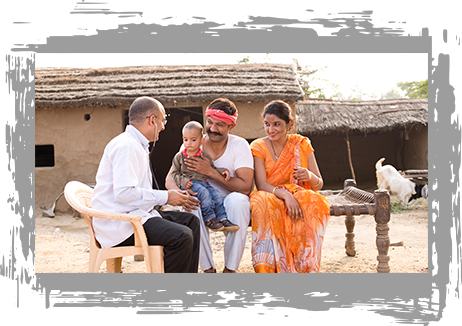
REPRODUCTIVE HEALTH & FAMILY PLANNING
The aim was to improve access to care for mothers and children in low resource settings by building capacities of frontline healthcare workers to manage reproductive, maternal and child health.
We, at Empower helped Paramount Products with the following:
-
Developed e-learning materials on topics including violence against women and sexual harassment; menstrual hygiene and health; antenatal and postnatal care; family planning and various methods of contraception/birth control; and safe abortion counselling and techniques.
-
Delivered virtual training and capacity-building workshops to train healthcare staff at the factory level on building knowledge around the area of SRHR and become ‘SRHR Champions’. This training aimed to further train female factory workers at the rural level on overall SRHR issues.
-
The primary aim was to empower women towards a more fulfilling life through workplace-based interventions on health, financial inclusion, and gender equality. This initiative also aimed to bring gender parity and open doors for economic opportunities for women workers by ensuring sustainability in the system and society.
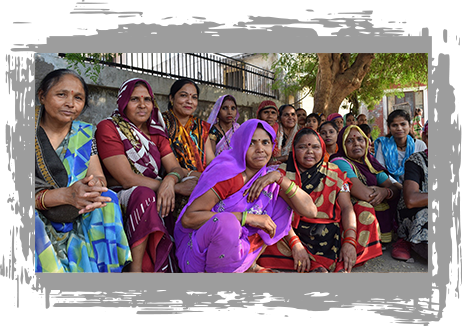
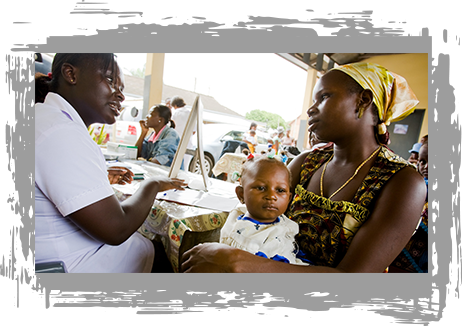
Africa has some of the lowest contraceptive prevalence rates and highest maternal mortality rates. Through the MTaPS program, Empower is building the capacity of the pharmaceutical system in improving maternal, newborn, and child health (MNCH) indicators, such as preventing deaths and reducing the prevalence of diseases in the population.
Empower has designed and developed e-learning courses for multiple countries to address MNCH program issues. These courses aim to increase the capacity, skill, and understanding of various frontline healthcare workers and eventually reduce MNCH mortality rates.
WATER, SANITATION AND HYGIENE (WASH)
Importance of sanitation in a world that is struggling to break the rapid spread of COVID-19, cannot be stressed enough. Sanitary and hygiene practices directly affect the health of individuals. Poor sanitation in the country is often a result of the unavailability of resources and lack of awareness among the people.
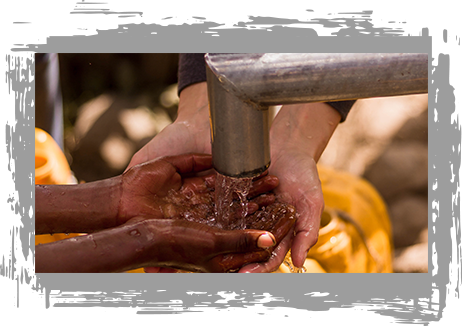
Save the Children (funded by Unilever) is carrying out a project in India focused on hand hygiene, sanitation, and infection prevention and control, targeting the last mile of the population, which includes mothers, children, school teachers, and frontline health workers.
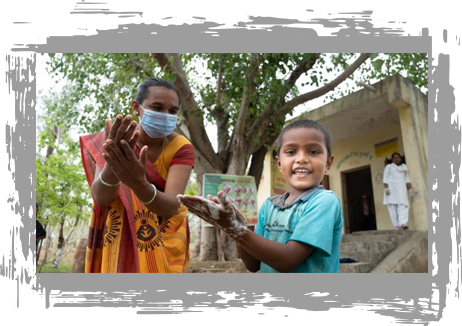
WASH emphasizes teaching basic sanitation and hygiene practices to communities at large, with a particular focus on providing access to clean water, basic toilets, and good hygiene practices. In India, where over 450 million people live in rural areas, only 45% have access to handwashing facilities with soap.
Empower has developed an e-learning course on the prevention and management of COVID-19, with a focus on hand hygiene techniques, including hand washing with soap and water. The objective of this course is to train frontline staff on effective infection prevention, including COVID-19.

Empower partnered with IFRC and the Ghana Red Cross Society to support digital transformation in Ghana. Through a digital learning and capacity-building initiative, the program trained health professionals and volunteers in WASH and humanitarian crisis response. This initiative aligns with the IFRC’s digital transformation strategy, emphasizing the impact of digital technology in delivering humanitarian aid, valuable during the Covid-19 pandemic and beyond.
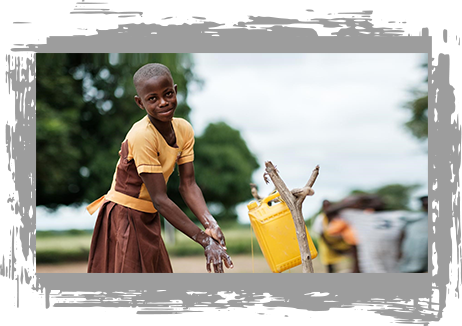
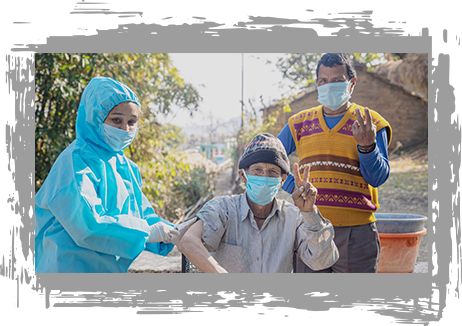
IMMUNIZATION
Strong disease surveillance systems are critical for achieving universal health coverage (UHC) as they provide governments and public health decision-makers with the necessary data to ensure that all individuals and communities have access to healthcare services. This data is particularly important in the context of infectious disease outbreaks, during which government officials must act quickly and decisively to prevent the spread.
Training and capacity building for strengthening LMIC and supply chain skills for vaccine supply chain management in Senegal (funded by Logistimo and supported by GAVI).

Empower, in collaboration with GAVI, is supporting Senegal’s Ministry of Health immunization program. The program focuses on training healthcare staff in hospitals and clinics across the country on the use of new software. The software will reduce wastage and improve efficiency across the supply chain.
What we did?
- Deployment and Training: Trainers from central, regional, and district level were trained on how to use the new software system for supply chain management and how to train end-users on the same.
- User support and monitoring: Once users are trained and entities are live, we started the monitoring and supporting the users.
HEALTH AND NUTRITION
Globally, more than two billion people, including women and children, do not get the micronutrients they need to survive and thrive. The impacts of micronutrient deficiencies are devastating for individuals, families, and entire countries. COVID-19 has further strained the health systems, resulting in severe and widespread global food insecurity and acute food shortages in almost every country.
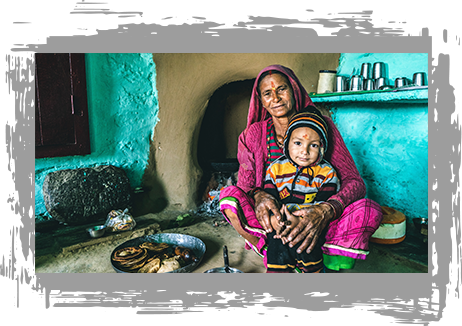
Empower has collaborated with GAIN's nutrition programs in India and Nigeria to implement effective and sustainable food fortification interventions at scale. The project involves using creative yet applicable ways of improving the capacities of industry personnel, government officials, food safety officials, technical food fortification professionals, and academia on food and micronutrient analysis.
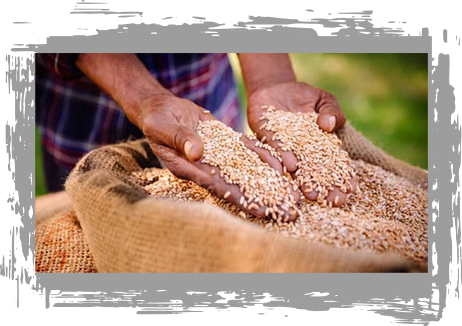
Empower has designed Incremental Learning Approach (ILA) by developing e-learning courses and learning management systems with the intent to professionalize the workforce. Our accredited and certified training programme trains technical staff involved in food fortification and micronutrient analysis activities.
HUMANITARIAN EMERGENCY RESPONSE & COVID-19
In 2021, countries dealing with existing humanitarian crises or emergencies are particularly exposed to the effects of COVID-19. Responding swiftly to the pandemic, while ensuring that humanitarian and recovery assistance reaches those most in need, is critical.
Empower supported various projects addressing public health issues in areas affected by conflict and natural disasters.
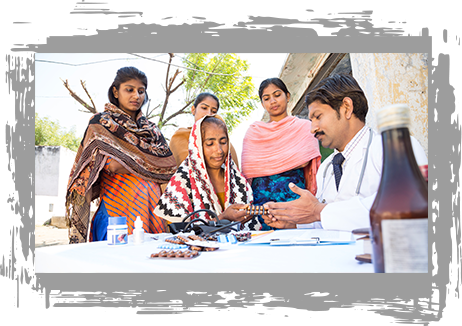
COVID-19 and supply chain: Longer-term strengthening of public health supply chains and improving country-level pandemic preparedness to help provide better access to supplies for vulnerable populations. Today, health supply chains face new and unprecedented threats from global pandemic outbreaks including COVID-19 that often occur in the world’s most vulnerable areas. Moreover, across the world, an estimated 2 billion people currently do not have access to essential supplies.
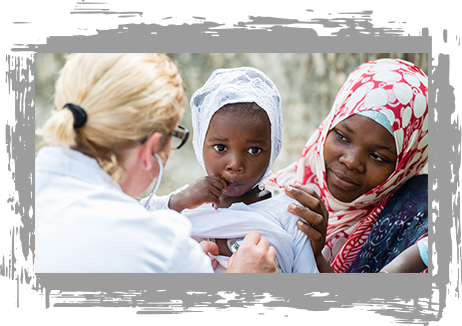
Empower is supporting Johnson and Johnson Global Health in developing supply chain management education package for frontline healthcare workers working at the primary healthcare centre at the last mile (including pharmacists, nurses, midwives, and community health workers) to understand the health commodity/vaccine supply chain, and its related challenges, addressing the COVID-19 pandemic. This engagement focuses on making health systems more resilient and enhance their ability to absorb and respond to health shocks by improving existing supply chains.
